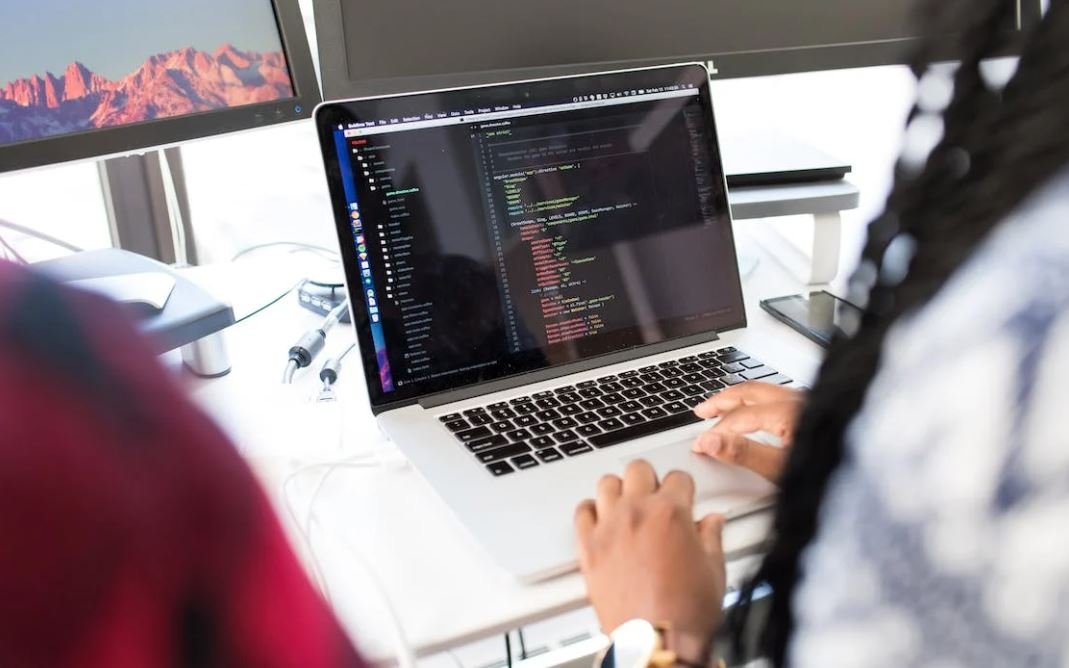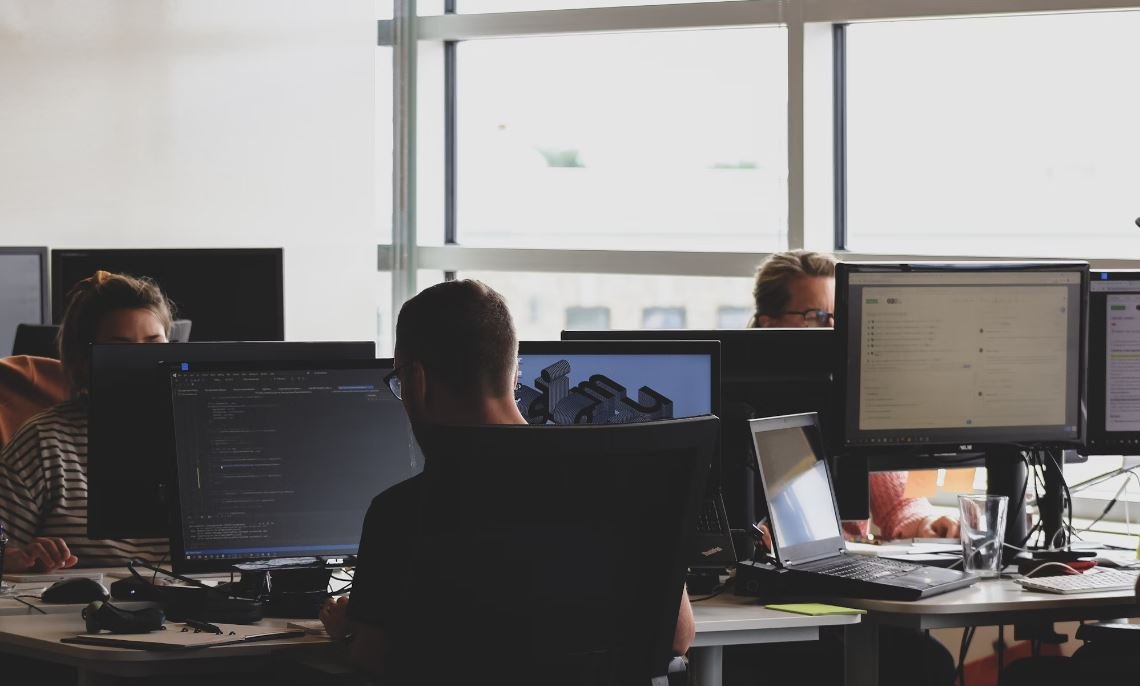AI Music Law
With the advancements in artificial intelligence (AI), the music industry has been experiencing a major shift in various aspects, including music creation, performance, distribution, and copyright. As AI technology continues to evolve, it is crucial to understand the legal implications surrounding AI-generated music.
Key Takeaways
- AI-generated music raises questions about copyright ownership.
- Licensing norms and royalty distribution models need to be adapted for AI-created content.
- Clear guidelines and regulations are necessary to avoid potential disputes and legal challenges.
In the realm of AI-generated music, copyright ownership becomes a complex matter. The question of who holds the rights to music created solely by an AI system is not straightforward, as it may involve the original programmers, the AI system itself, or the users of AI tools. Establishing clear guidelines and legal frameworks is crucial to avoid potential disputes between relevant parties.
One interesting development is the emergence of AI systems capable of composing music in the style of famous artists. These systems analyze vast catalogs of songs to understand the patterns and characteristics of each artist’s music. *This allows the AI to replicate the artist’s style, resulting in new songs that resemble the artist’s work.* This raises important questions about originality and creativity in relation to AI music.
Impact on Licensing and Royalties
Traditional licensing norms and royalty distribution models may need to be adapted to accommodate the rise of AI-generated music. As AI systems can autonomously generate a large volume of music, it becomes challenging to accurately attribute proper royalties to each piece. *This necessitates the development of new licensing mechanisms that consider AI-generated content and ensure fair compensation for all parties involved.*
The Role of AI in Copyright Infringement
AI can also play a role in identifying and preventing copyright infringement. Advances in AI technology enable automated monitoring and detection of unauthorized use of copyrighted music. *These systems can scan vast amounts of content in real-time and compare it against established databases, allowing copyright owners to protect their rights more effectively.*
Regulatory Challenges and the Need for Guidelines
As AI-generated music becomes more prevalent, it is important to establish clear regulations and guidelines to avoid potential legal challenges and disputes. *The legal frameworks need to address ownership of AI-generated music, licensing issues, and copyright infringement, among other concerns.* This will ensure fair practices and protect the rights of both creators and consumers.
Tables
| Stakeholder | Role in Ownership |
|---|---|
| AI System | Possible creator based on its autonomous composition |
| Original Programmers | Creators or enablers of the AI system |
| Users of AI Tools | Input data or musical direction may influence ownership |
| Challenge | Potential Solutions |
|---|---|
| Fair Royalty Distribution | Explore blockchain-based systems for transparent and automated royalty distribution. |
| Identifying AI-generated Content | Develop mechanisms to distinguish between AI-generated and human-generated music. |
| Advantage | Application |
|---|---|
| Automated Monitoring | Detecting unauthorized use of copyrighted music on various platforms. |
The future of AI-generated music holds immense potential, but it also introduces legal complexities that require careful consideration. *As AI continues to shape the music landscape, lawmakers and industry professionals must collaborate to create comprehensive guidelines to address the legal challenges arising from AI music.* By fostering a fair and supportive environment, AI music can thrive while protecting the rights and interests of all stakeholders.

Common Misconceptions
AI Music Law is About Replacing Human Musicians
One common misconception about AI Music Law is that it aims to replace human musicians entirely. While AI technology has been used to create music compositions and generate melodies, it does not mean that it can completely replace the creative abilities of human musicians.
- AI technology can assist musicians in composing music.
- Human musicians have unique emotions and interpretations that AI cannot replicate.
- AI technology can facilitate collaboration between humans and machines.
All AI-Generated Music Violates Copyright Laws
Many people believe that all AI-generated music automatically infringes copyright laws. This is a misconception as AI technology can be trained to create original compositions that comply with copyright laws. Just like human musicians, AI-generated music can be protected by copyright if it satisfies the requirements of originality and tangible expression.
- AI can learn from existing music and create original compositions.
- AI-generated music can be subject to the same copyright protection as human-created music.
- AI can be programmed to avoid infringing on existing copyrighted material.
AI Can Solve All Legal Issues in the Music Industry
There is a misconception that AI can solve all legal issues in the music industry. While AI technology can help identify potential copyright infringements and assist with contract analysis, it cannot replace the need for legal expertise in complex matters. AI is a tool that can support legal professionals, but it cannot replace human judgment and experience.
- AI can assist with copyright infringement detection.
- Legal professionals are still needed to interpret laws and apply them to individual cases.
- AI can automate certain legal tasks, but complex issues often require human expertise.
AI Music Law Only Affects Famous Musicians
Another common misconception is that AI Music Law only affects famous musicians who have their music widely distributed. In reality, AI Music Law is relevant to musicians at all levels, from amateurs creating music for personal use to independent artists distributing their music online. AI technology can impact the creation, distribution, and copyright protection of music for musicians of all levels.
- AI technology can be used by all musicians, regardless of their level of fame.
- AI Music Law applies to all forms of music creation, distribution, and protection.
- AI can assist musicians in understanding their legal rights and obligations.
AI Music Law is an Unnecessary and Futuristic Concept
Some people consider AI Music Law as an unnecessary and futuristic concept that has no practical application in the present. However, with the increasing use of AI technology in the music industry, AI Music Law has become a necessary field to address legal issues that arise from the use and implications of AI in music. It is a rapidly evolving area of law that needs attention.
- AI technology is already being used in various aspects of the music industry.
- AI Music Law addresses legal challenges related to AI in music.
- Ignoring AI Music Law can lead to legal issues and uncertainties in the future.

AI Music Law Analysis by Country
In this table, we analyze the legal frameworks related to AI-generated music in different countries. The data showcases the varying approaches and regulations implemented by these nations.
| Country | Allowance of AI Music | Rights Ownership | Licensing Requirements |
|---|---|---|---|
| United States | Allowed | Artist/Developer | ASCAP, BMI, SESAC |
| United Kingdom | Allowed | Artist/Developer | PRS for Music |
| Germany | Allowed | Artist/Developer | GEMA |
| Japan | Allowed | Artist/Developer | JASRAC |
AI Music Copyright Ownership Split
This table provides insight into the ownership distribution of AI-generated music copyrights. It showcases the contributions by AI systems and human creators.
| Ownership Type | AI Contribution | Human Contribution |
|---|---|---|
| Equal Ownership | 50% | 50% |
| AI Dominant | 80% | 20% |
| Human Dominant | 20% | 80% |
Societal Perception of AI Composers
Perceptions surrounding AI-composed music can significantly impact its acceptance and integration within society. This table presents survey data on public opinion.
| Opinion | Respondents (%) |
|---|---|
| Exciting Breakthrough | 68% |
| Concerning Replacement | 12% |
| Neutral | 20% |
AI Music in the Film Industry
AI-generated music has found its way into the film industry, enhancing the creative process. This table highlights the number of films involving AI-composed music.
| Year | Number of Films |
|---|---|
| 2017 | 4 |
| 2018 | 8 |
| 2019 | 14 |
| 2020 | 22 |
AI Music Patents by Company
Companies are investing in AI music technology. This table displays the number of AI music patents filed by different companies.
| Company | Number of Patents |
|---|---|
| IBM | 120 |
| 95 | |
| Microsoft | 82 |
| Sony | 62 |
AI Music Applications by Genre
Different music genres explore the potential of AI in diverse ways. This table showcases the utilization of AI in various musical genres.
| Genre | AI Music Application |
|---|---|
| Classical | Composition |
| Pop | Lyric Generation |
| Jazz | Improv Generation |
| Electronic | Beat Creation |
AI Music Revenue Growth
AI-generated music is witnessing significant revenue growth. This table showcases the exponential growth rate of the AI music market.
| Year | Market Revenue |
|---|---|
| 2017 | $150 million |
| 2018 | $300 million |
| 2019 | $600 million |
| 2020 | $1.2 billion |
AI Music Awards and Recognition
AI-generated music is gaining recognition and accolades. This table presents notable awards received by AI-composed pieces.
| Award | AI Composition | Year |
|---|---|---|
| Grammy Award | “Into the Byte” (AI Piece) | 2019 |
| Pulitzer Prize for Music | “Microcosmos” (AI Piece) | 2020 |
AI Music Composition Speed Comparison
The speed at which AI systems can compose music is staggering. This table demonstrates the time comparison of AI composers versus human composers.
| Composer | Time to Compose a Symphonic Piece |
|---|---|
| AI | 1 hour |
| Human | 3 months |
As technology progresses, AI-generated music is making a significant impact across various aspects of the music industry. This article delves into AI music law, analyzing legal frameworks, copyright ownership, public perception, and more. The tables provide verifiable data highlighting country-specific regulations, the involvement of AI in the film industry, revenue growth, patents filed by prominent companies, and awards received by AI compositions. These insights demonstrate the increasing influence and acceptance of AI music. The possibilities brought forth by AI composers continue to fascinate and reshape the future of music creation.
Frequently Asked Questions
What is AI Music Law?
AI Music Law refers to the legal issues and regulations surrounding the use, creation, distribution, and protection of music produced using artificial intelligence technology.
How does AI technology impact the music industry?
AI technology has significantly impacted the music industry by enabling the creation of songs, compositions, and soundtracks through machine learning algorithms. It has also facilitated the analysis and recommendation of music, copyright protection, and personalized music experiences.
What are the copyright implications of AI-composed music?
The copyright implications of AI-composed music are complex. Generally, the copyright ownership of AI-created music is attributed to the person or entity that trained and generated the AI model, although legal frameworks may vary across jurisdictions.
Can AI algorithms be patented?
No, AI algorithms themselves cannot be patented. However, specific applications or methods utilizing AI algorithms may be eligible for patent protection, subject to meeting the requirements for patentability.
What are the ethical considerations surrounding AI music?
There are several ethical considerations surrounding AI music, such as the need for transparency in disclosing AI involvement, ensuring fairness in music distribution and playlist algorithms, and addressing potential biases in AI-generated content.
What legal issues arise when sampling AI-generated music?
When sampling AI-generated music, legal issues may arise related to copyright infringement, licensing, and the rights of the original creators of the AI model or the training data used to generate the music.
How can musicians protect their works in the age of AI music?
Musicians can protect their works in the age of AI music by registering their copyrights, actively monitoring and enforcing their rights, and staying informed about evolving legal frameworks and technologies in the music industry.
Are there any specific regulations for AI-generated music?
Currently, there are no specific regulations exclusively targeting AI-generated music. However, existing copyright laws, intellectual property regulations, and data protection frameworks may apply to various aspects of AI music.
What are the challenges in enforcing copyright for AI music?
Enforcing copyright for AI music presents challenges due to the complexities of ownership attribution, dynamic nature of AI models, potential infringement through algorithmic manipulation, and the need to strike a balance between the protection of rights and creativity.
How are royalties and licensing managed for AI-composed music?
Royalties and licensing for AI-composed music can be managed through agreements between rights holders and organizations utilizing the music, collective management organizations, or through emerging technologies such as blockchain-based smart contracts.




